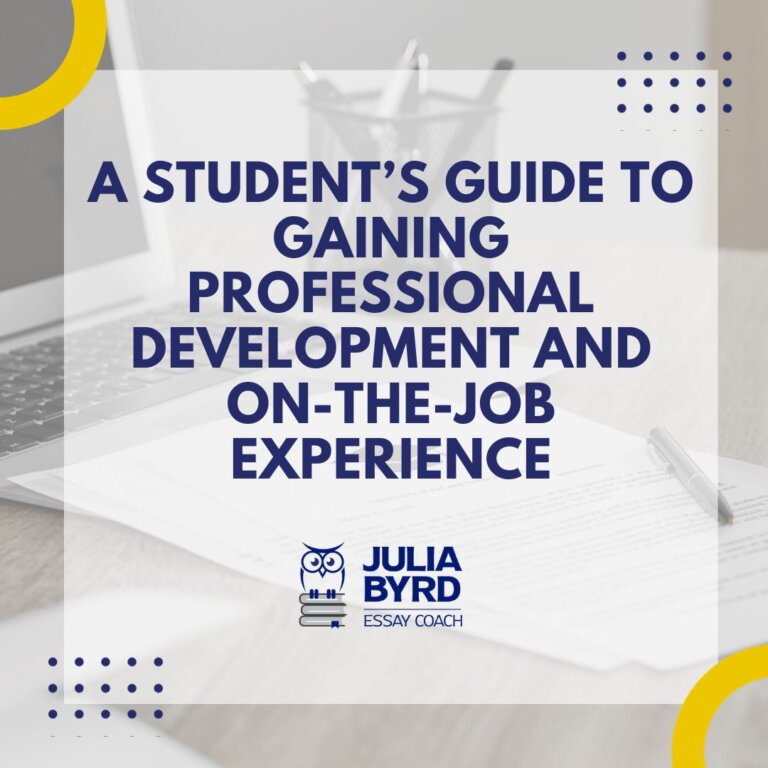Avoid the Senior Slide: 8 Ways to Finish Your Year Strong


Reading time: 7 mins.
It’s the second semester of your senior year, and the risk of the senior slide (also known as the “senior slump” or “senioritis”) is real.
You’ve been working hard for the last 3.5 years. And they’ve been intense. But now, you’re finally seeing the light at the end of the tunnel. You’ve put in your college applications. You’re getting acceptances and scholarships. You’re seeing your work pay off. And now, you’re more than ready to move on to the next phase of your life.
Now is when senioritis often kicks in. You may find yourself starting to slack off and lose motivation in your academics. After all, it feels like high school just doesn’t matter as much anymore. But don’t be mistaken: Slide too far, and you can jeopardize your grades and even your chances of getting into college (or keeping the acceptances you do have).
Don’t let your guard down and decide to coast through the rest of the year — or find that you’ve slipped so far that it’s nearly impossible to catch up. There’s still a lot at stake. But luckily, there’s plenty you can do to finish strong. Here are 8 things you can do today to cure senioritis.
1. Find Your Motivation
Just because you’re a senior, that doesn’t mean you can slack off. You still have classes to attend, homework to do, and good grades to make. Remember, your grades in your final year will still affect your GPA and ranking — and they can potentially still affect your college admissions and even your scholarships. You’ll need to send a final (and maybe even a mid-year) transcript in to your chosen college, and what colleges see can impact what your post-graduation life looks like.
While it doesn’t happen often, colleges can (and have) rescind acceptances and merit aid if you fail to live up to the conditions established as part of your offer of admission. And those conditions usually include the understanding that you’ll finish senior year with a similar academic performance to that on which your admission offer was based. (Note: While it’s more likely they’ll remove merit than it is they’ll rescind your acceptance, both can absolutely happen.) On the flip side, you might even get a bump in merit aid if they see you killing it in the classroom.
If your parents are funding your college education, make sure you’re proving to them that you’re ready for the rigors of the college classroom. A first-semester report card with Cs and Ds when you’re usually an A and B student may give them pause about paying for what can sometimes be a high-ticket university.
If nothing else, keeping your eyes on the ultimate prize — college — can help keep senior slide at bay.
2. Keep Up With Extracurricular Activities
Just because you’re a senior and will soon be saying goodbye to your high school life, it doesn’t mean you have to start giving up the activities you love. In fact, colleges like to see that you’ve been involved and dedicated to your extracurriculars throughout high school and have found interests to continue in college. So whether it’s participating in sports, clubs, or community service, keep up with your passions and continue to make a positive impact. Staying engaged and knowing you’re contributing to something bigger than yourself may help keep you working hard toward your goals.
3. Ask for Help
Sometimes, senior slide isn’t about apathy. If you feel there’s more going on that’s contributing to your senior-year struggle (like depression, anxiety, or a learning challenge), talk to your parents, a teacher, your counselor, or another trusted adult. We all want to see you succeed and will find ways to get you back on track — emotionally, physically, mentally, and educationally.
Knowing you’re not alone and there are solutions to the problems you may be facing can keep you moving forward in a positive direction.
4. Plan for Your Success
As you’re getting into your senior year courseload, you might be tempted to drop a course you’re not enjoying. Or that you’re not doing well in. Or that you might think that colleges won’t notice if you drop. (Hint: They will.)
Before you drop that class or stop putting effort into it, remember that you’ve shared your senior-year courses with your future college. Check in with your future college’s admission counselor and ask: Is it OK for me to drop this class? Will it affect my admission status or my freshman-year courses? You might find out that you can add in a study hall or elective with no consequences, or you may find you’re going to have to dig deep and really work hard in that course to complete it.
You’ll be on your own next year — or at least more on your own than you have been — so it’s important to learn the strategies now to manage responsibilities and commitments.
5. Stay Organized
As a senior, you have a lot going on. You have college applications to finish and submit, scholarships to apply for, and decisions to make about your future — not to mention keeping up with classwork, extracurriculars, jobs, and your social life.
Managing it all can be overwhelming, but staying organized will help you stay on top of everything — tasks, dates, free time, and deadlines. Use a planner (either written or digital), prioritize your to-do list, set reminders on your phone, and don’t be afraid to ask for help if you need it.
Your behaviors now are forming your habits for the future. Make sure they’re great ones! A lackadaisical work ethic now won’t prepare you well for college academics. And it’s likely to make the academic transition to college even more challenging than if you continue to work hard now, learn the organizational strategies that work for you, and push through senior year to a successful completion.
Bonus: Getting organized now will help you establish some great habits for college!
6. And Don’t Procrastinate
Putting off schoolwork until the last minute can be tempting, especially when you’re feeling burnt out. And it’s easy to underestimate how long it’ll take to get a project or assignment done. These only make the actual doing of the schoolwork worse and more overwhelming, making you even less likely to complete it (or complete it well).
Instead, try to tackle your assignments as soon as possible, no matter how painful that suggestion may seem. This will help you avoid the stress of cramming and may even give you extra time to review and improve your work — but it will also help you bask in the glorious feeling of being done while your friends are still working.
7. Set New Goals
You’ve lived through much of the past year (or two or three) with a big goal in mind: Get into college. Now that you’ve done all you can to achieve that goal, why not set some new ones? After all, motivation is easier when you have a clear target in mind.
Think about what you want to achieve during the rest of your senior year. Maintain your GPA? Take a new course or learn more about a new subject? Get a part-time job? Even just spend more time with friends?
Having concrete goals will give you something to work toward and help keep you motivated.
8. Have Fun!
Being a senior is a big milestone, and you’ve worked hard to get here. So enjoy it. It’s a lot of “lasts” that you don’t want to miss. Life is all about balancing work and play. Just don’t let the fun get in the way of your responsibilities.
Turn Your Senior Slide Into a Senior Climb
While senioritis might be a common pitfall for many students, it doesn’t have to be one for you, too. Just remember: Decisions come with consequences. While everyone has to learn that lesson eventually, you don’t want to risk your college future with the decisions you’re making now.
With just a little planning, focus, and organization, you’ll find a cure for senioritis, finish your senior year strong, and set yourself up for success in the future.








